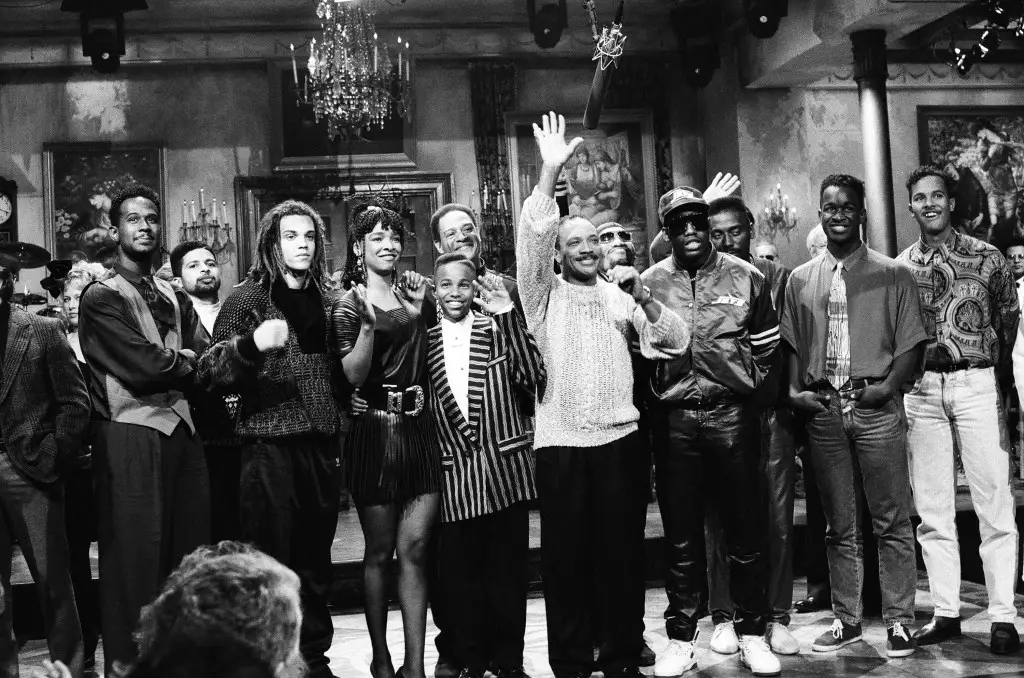Quincy Jones, a towering figure in the music industry, passed away this week at the age of 91, leaving a legacy that resonates within every corner of the artistic landscape. The popular sketch comedy show *Saturday Night Live* (SNL) paid its respects to the legendary musician during its latest episode, illustrating the deep impact Jones had on music and culture as a whole. SNL’s homage concluded with a simple yet profound card that honored Jones, reminding viewers of his multifaceted contributions to the entertainment industry.
Jones’s storied career was characterized by an extraordinary breadth of work that spanned to almost seven decades, starting from the jazz scene in the late 1940s to global superstardom by the late 20th century. His appearance on SNL in February 1990 is remembered fondly, not merely because he was a host but due to the assembly of notable musical guests he brought with him. The sheer number of musical acts—ten in total—during that episode became a benchmark in the show’s illustrious history. Among the guests were prominent artists like Kool Moe Dee and Melle Mel, each contributing to a musical experience that was as vibrant as it was unforgettable.
The significance of that episode extended beyond the music; Jones used the platform to honor Nelson Mandela, who was on the brink of his release from prison. This gesture illustrated not just his musical prowess but also his commitment to social issues and humanitarian efforts. Jones was not just a figure in the entertainment world; he was also a voice of change who understood the power that music holds in shaping culture and society.
Throughout his career, Quincy Jones seamlessly transitioned between roles as a composer, producer, and songwriter, showcasing an extraordinary range that few can match. His production of Michael Jackson’s landmark album *Thriller* stands out as a monumental achievement, defining the sound of a generation. Additionally, his collaborations with Frank Sinatra produced some of the most cherished tunes in American music. Notably, his contributions to film music—scores for classic films such as *In the Heat of the Night* and *The Color Purple*—further solidified his status as a luminary in the industry.
Jones’s profile is inevitably intertwined with his family life. His daughter, Rashida Jones, known for her roles in *Parks and Recreation* and *Angie Tribeca*, represents a legacy of creativity that transcends generations. This personal connection adds depth to the rich tapestry of his life, showing that his influence goes beyond music to touch the lives of individuals who continue to carry his spirit forward.
Quincy Jones has left an indelible mark on music and popular culture. The tributes that poured in following his passing reflect the profound admiration and respect from fans and industry peers alike. From his innovative approaches to music production to his passionate advocacy for social change, Jones embodied what it meant to be an artist deeply engaged with the world around him. His legacy will undoubtedly inspire future generations of musicians, ensuring that his contributions will be celebrated for years to come.

